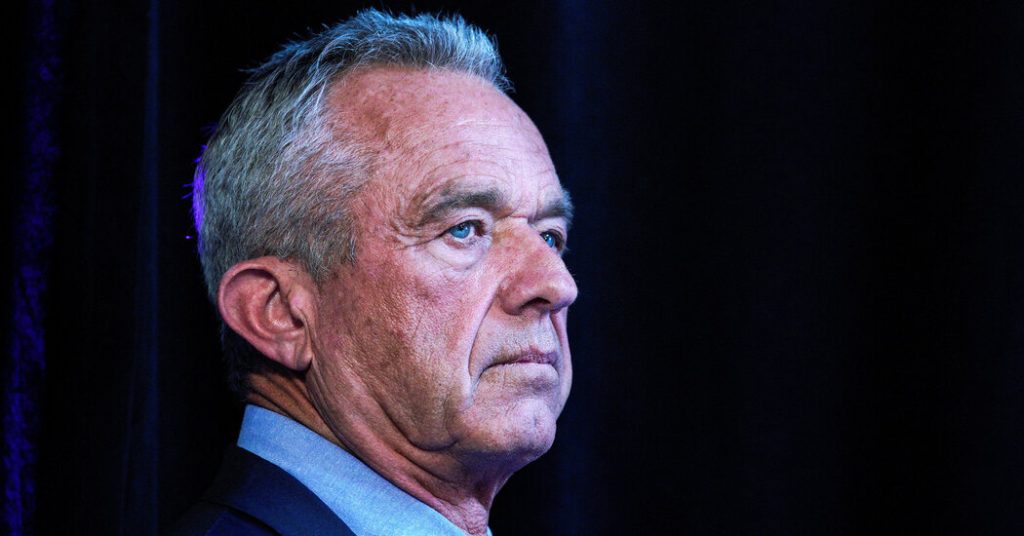Robert F. Kennedy Jr, an independent presidential candidate, has faced serious health issues, including memory loss and fogginess, as well as a potentially harmful parasite in his brain. Doctors originally believed he had a brain tumor, but eventually concluded that he had a dead parasite in his head. Kennedy has portrayed his athleticism and relative youth as an advantage over other older presidential candidates like President Biden and former President Trump. Despite his health challenges, his campaign has focused on gaining access to more states to potentially impact the election.
Kennedy has faced a series of health complications over the years, including atrial fibrillation, mercury poisoning, and a parasite in his brain. These issues have impacted his cognitive abilities, leading to memory loss and fogginess. Kennedy has claimed to have recovered from these conditions and believes he is fit for the presidency. However, his campaign has not released his medical records, similar to Biden and Trump in the current election cycle. Despite this lack of transparency, Kennedy continues to campaign and focus on gaining access to more states to increase his chances in the election.
The parasite found in Kennedy’s brain was likely a pork tapeworm larva, a condition known as neurocysticercosis. This infection can cause symptoms such as seizures, headaches, and dizziness. While some tapeworm larvae can live in the brain without causing problems, others can lead to serious health issues. Kennedy also experienced mercury poisoning, likely from consuming fish with high levels of the heavy metal. This caused severe brain fog and cognitive issues. Kennedy made changes to his diet and underwent chelation therapy to address the mercury poisoning.
Kennedy’s health problems also include atrial fibrillation, which he has experienced since college. Stress, caffeine, and lack of sleep can trigger this condition, leading to episodes where his heart beats out of sync. Kennedy has also disclosed contracting hepatitis C from intravenous drug use in his youth, but has been successfully treated and has no lingering effects. Additionally, he has spasmodic dysphonia, a neurological disorder that affects his voice, causing it to be hoarse and strained. Kennedy has undergone procedures to manage this condition and has experienced a decline in his ability to give speeches as a result.
Despite his health challenges, Kennedy remains committed to his presidential campaign, focusing on gaining access to additional states. While he has faced serious health issues such as a parasite in his brain, mercury poisoning, and heart problems, Kennedy believes these conditions have been resolved or are being managed effectively. His campaign has chosen not to disclose his full medical records, following the trend of previous presidential candidates in this election cycle. Kennedy’s health history reveals a complex combination of conditions that have impacted his cognitive abilities and overall well-being, but he remains determined to continue his campaign for the presidency.


